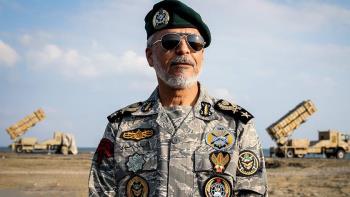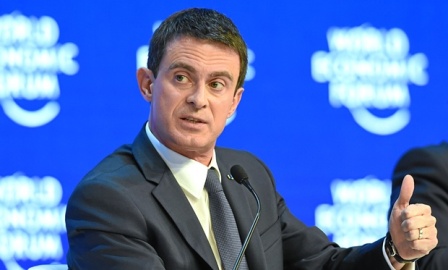Alwaght- France plans to extend the state of emergency that has been in place since the Paris attacks in November despite rising Islamophobia and criticism from human rights groups and United Nations experts.
French Prime Minister Manuel Valls said the special measures, which give police in France a range of powers, including the ability to detain suspects without warrants, should continue “until we can get rid of Daesh [ISIS]”.
“As long as the threat is there, we must use all available means,” he said on the sidelines of the World Economic Forum in Davos, Switzerland on Friday. “It is a total and global war that we are facing with terrorism . . . The war we are conducting must also be total, global and ruthless.”
"In Africa, in the Middle East, in Asia, we must eradicate – eliminate – Daesh," Valls said using the Arabic acronym for the ISIS terrorist group. "It is a total and global war that we are facing with terrorism. The war we are conducting must also be total, global and ruthless."
Asked how long he thought the measure would remain in place, Valls said: "[For] the time necessary. We cannot always live all the time in a state of emergency."
The government declared a state of emergency within hours of the first shots by gunmen on 13 November, when a series of attacks across Paris left 130 people dead. But the powers – which hark back to the Algerian war in the 1950s – were later redefined and extended for three months until 26 February.
The state of emergency allows police to conduct house raids and searches without a warrant or judicial oversight, including at night, and gives extra powers to officials to place people under house arrest outside the normal judicial process. It also allows for restrictions on large gatherings.
This week, a group of four UN human rights specialists called on France not to extend the state of emergency, warning of “the lack of clarity and precision of several provisions of the state of emergency and surveillance laws”. Their main concerns centered on the restrictions to freedom of expression, freedom of peaceful assembly and the right to privacy.
Meanwhile France is embroiled in a contentious national debate over whether Islamophobia is an acceptable reaction to recent terror attacks, sparked by controversial comments made by the prime minister defending in tolerant attitudes.
Prime Minister Manuel Valls sparked controversy over secularism and the place of Muslims in French society when he implicitly defended the idea that being Islamophobic was tolerable.
Muslim minorities have growingly perceived this principle as the embodiment of French in tolerance Islam.
Valls also expressed serious concern over the EU’s current migration and asylum policies, saying that “we cannot say or accept all refugees, anyone fleeing the terrible wars in Iraq or Syria can be welcome in Europe”.
The refugee “crisis endangers the European project” Valls said, going as far as to say that the idea of Europe itself “that can die”.
“Not our values, but the concept of Europe that our founding fathers had, yes, it’s in very grave danger,” he said.
More than a million migrants, refugees and asylum seekers entered Europe in 2015, a 20-fold increase on the year before.



























